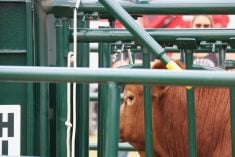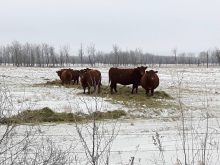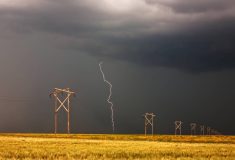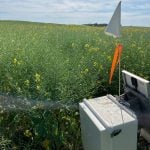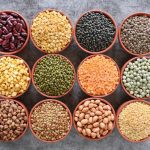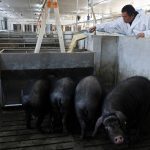Real estate, housing prices, parking, city planning — these kinds of headlines litter my mainstream newsfeeds. Then, out of the blue, a national outlet runs a negative story on GMOs or hormones in beef, or agricultural byproducts contaminating a water or food source.
My ag news feed is very different. Its writers know the industry, and, generally, keep from commenting on the goings on of the city.
There is a stark contrast between the coverage of agricultural news outlets and the coverage we see in mainstream media. This is a problem, if sources such as international and other mass-market organizations decide to tackle ag issues only when it is convenient to do so. And they do this all the time. So, yes, the lack of regular ag coverage in mainstream media is a huge problem — a huge problem that is partly responsible for the public’s lack of trust in large-acre farmers and the agriculture industry in general.
Read Also

Avoid these thought traps when investing
Investing for Fun and Profit: Let’s review a list, by renowned fund manager Peter Lynch, of the most dangerous things that stock market investors can say to themselves, or to others.
To make real headways on the issue of public trust, agricultural coverage has to become a regular part of the news landscape. The public must have constant access to the goings on of the agricultural industry.
Full disclosure: I also write an ag-based column for the Financial Post, which is a major outlet taking a step in the right direction. But that is just one column in just one paper.
About two years ago, someone from a major news outlet approached me about writing a column about things happening outside of Winnipeg. I met with the editor of the section in which my column would potentially run. It was a disappointing meeting and a telling one. The whole encounter smacked of condescension. But, more so, it was indicative of a larger problem with agricultural coverage. And it gave credence to the lack of faith many farmers have in mainstream media, especially when it attempts to educate its readership on issues it often doesn’t know much about.
This particular editor had trouble envisioning a rural perspective being able to produce anything relevant to this outlet’s readership, which is largely urban.
The commitments of this particular news outlet became clear before my first sip of beer: it cares about agriculture when farmers are to blame for something; when politicians make an announcement; or when the chef of the day decides to get his or her food from a hobby farm located 10 kilometres outside of city limits.
There were a few things about that meeting that put me off: first, the condescension. Then, the fact that I was put on the spot to justify the relevance of a column I was first approached to write.
If a major news source has mandated to limit its coverage of ag issues over concerns of relevance to its readers, then its reporters and writers should not be able to comment on such topics. But this happens all the time. And it’s been a huge disservice to the ag industry. These editorial mandates are the beginnings of misinformation.
And not only that, public trust in agriculture will continue to deteriorate if the outlets that reach the most people continue to publish the dribble of writers who know nothing about the industry.
The problem is that agriculture is perceived as niche news only relevant to those directly involved in it. Agriculture is relevant to everyone.
On something as basic, as fundamental as agriculture is to everyone on this planet, relevance should be assumed. Ag is for all of us. Coverage of a downtown development in Regina may not be of interest to someone living in the suburbs, but such a story could get above-the-fold treatment in that person’s daily paper, based solely on the fact that it’s happening in that reader’s city.
Well, agriculture affects your city, your province and your country. We grow the food you eat. We steer a sizeable part of the economy. And we’re smarter and more complex than you think.
If our mainstream newsfeeds could be a balanced and trusted mix of urban and rural coverage, perhaps the chasm between the city and the farmer would begin closing; perhaps the public’s trust in the agriculture industry would galvanize into something more closely representing understanding and support.



